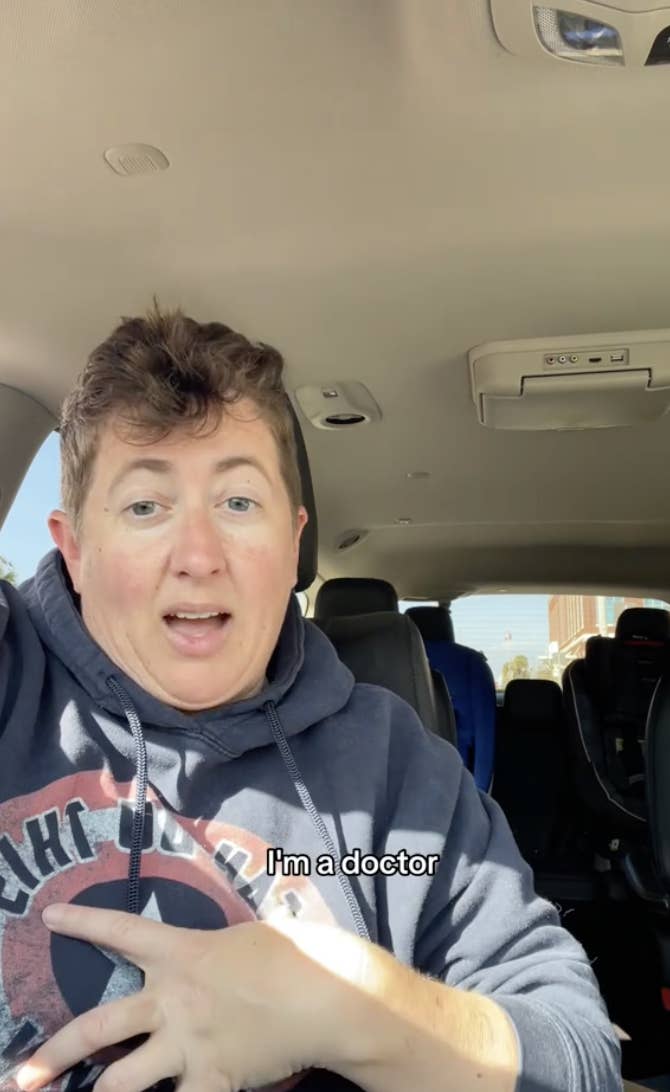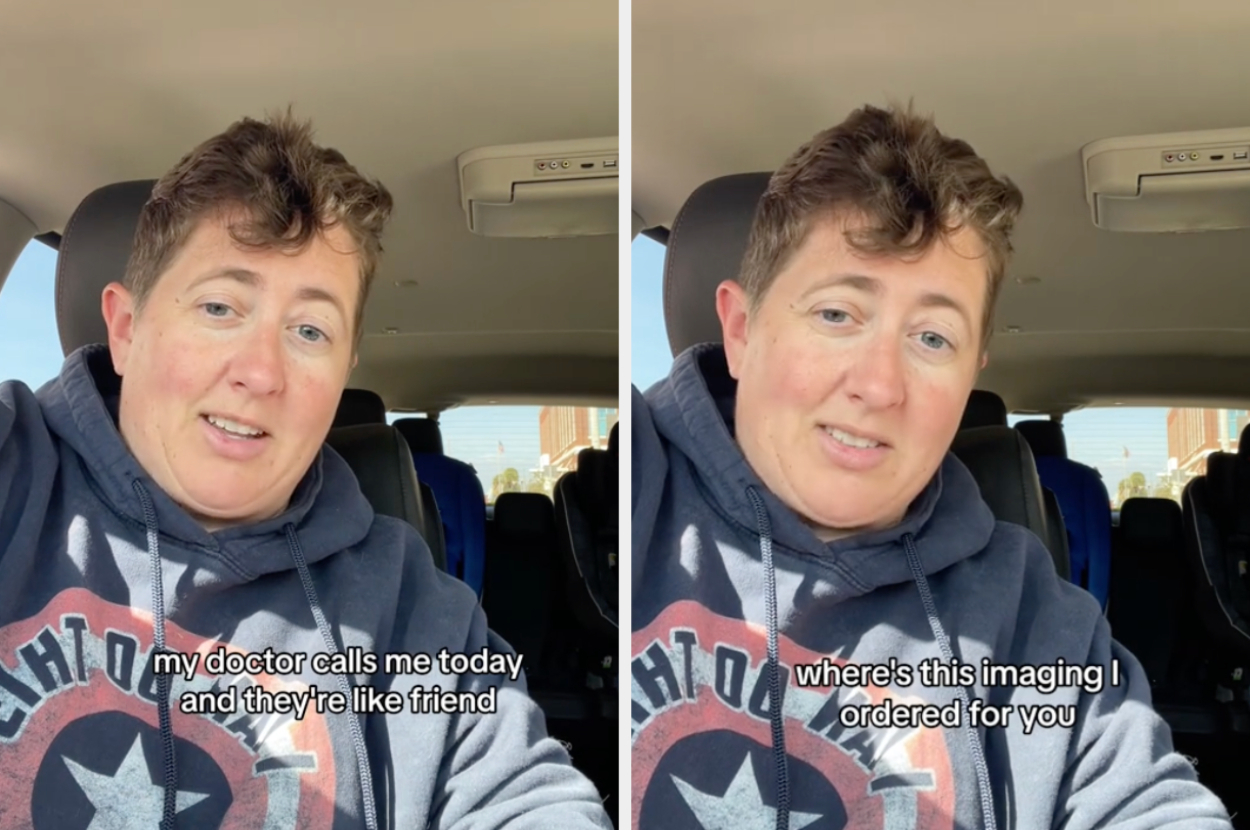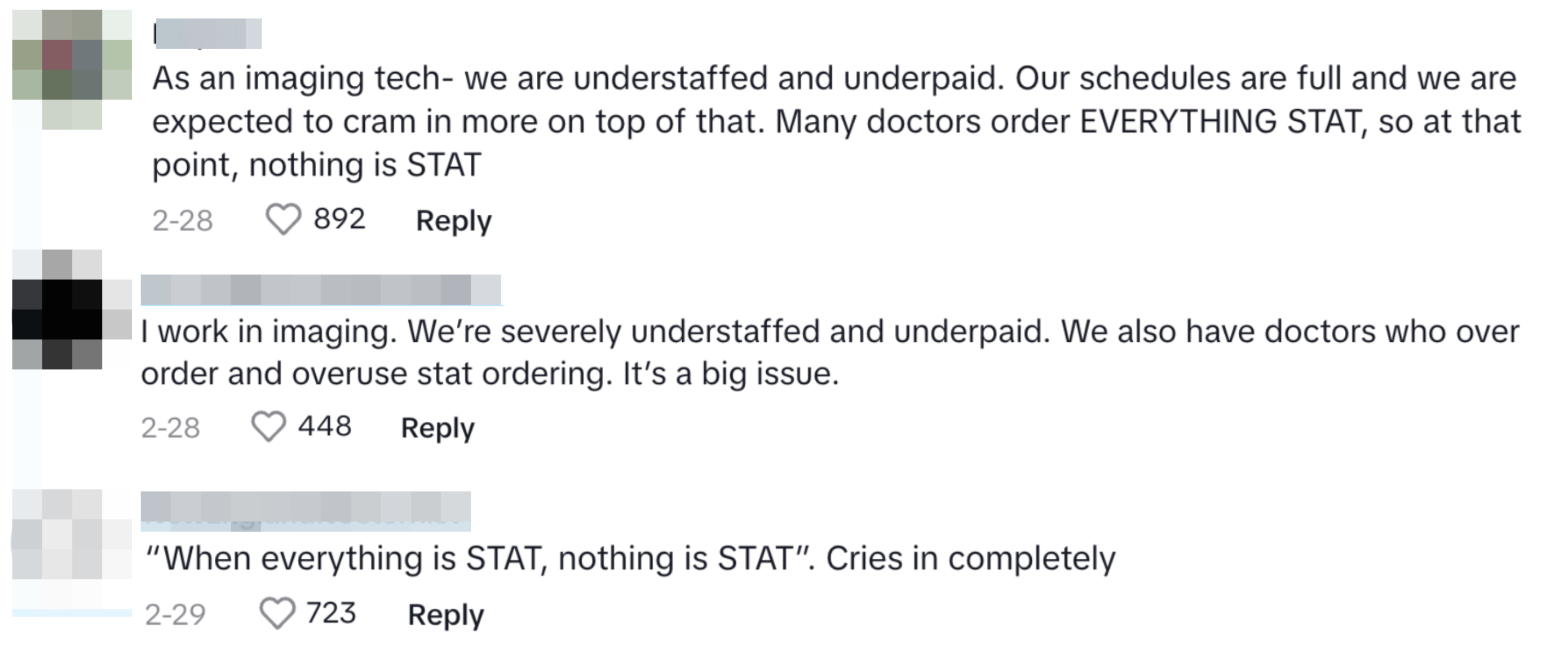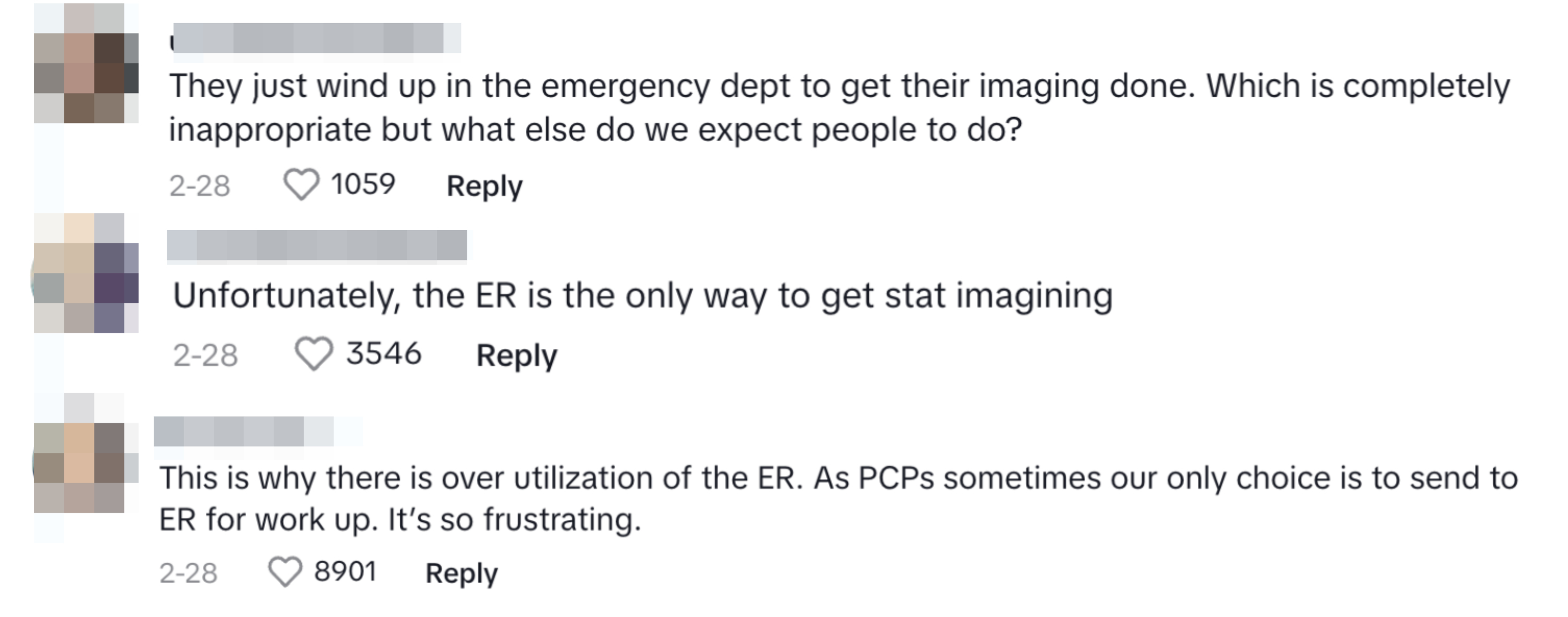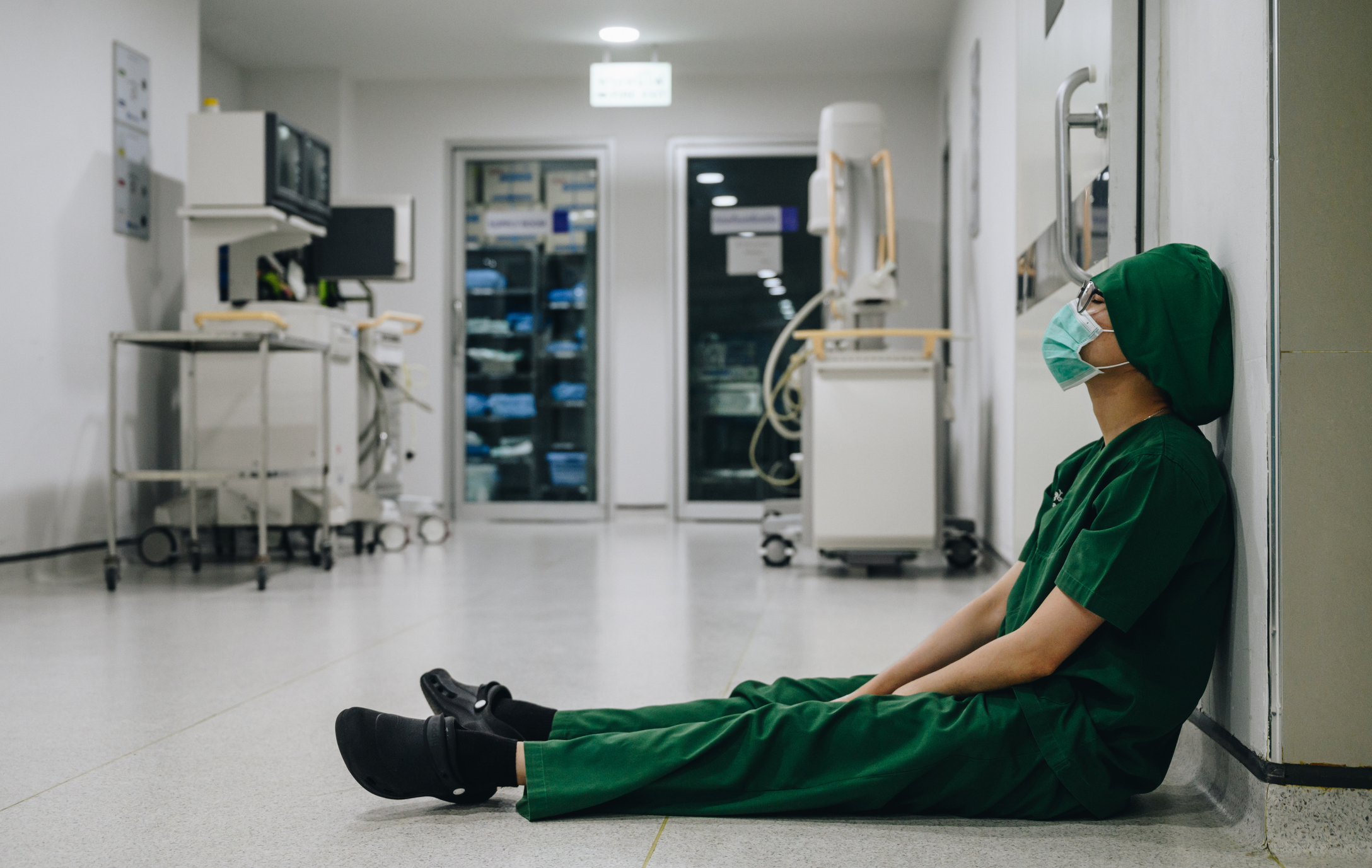" Stat " mean that examination should be done as shortly as possible — but that ’s not often what happens .
Recently, I came acrossa videoby Dr. Beachgem,a popular doctor over on TikTok, who shared how hard it was for her, a doctor, to get an urgent appointment.
Dr. Beachgem explained that she’s been having some concerning symptoms, so she immediately made an appointment with her doctor. Also concerned about the symptoms, her doctor requested “stat” labs and imaging.
Dr. Beachgem explained that “stat” usually indicates that a test must be done immediately. She told BuzzFeed, “It often means that there is significant clinical concern from the physician ordering the test.”
In Dr. Beachgem’s case, she was able to get the labs done immediately, and even get the results back quickly. The imaging, on the other hand, she said, “I hand the lady the thing and said it’s stat. She says it doesn’t matter; you can’t do this, you have to call and make an appointment. I said, even if it’s stat? She said, ‘Even if it’s stat.'”
Dr. Beachgem called, and the earliest she could get her “stat” appointment was a month away. She explained, “I called a couple of other places. No one else can get me in in the next three weeks. So I just leave it.”
Dr. Beachgem continued, “My doctor calls me today, and they’re like, ‘Friend, where’s this imaging I ordered for you?’ And I said I haven’t been able to make it happen. I said it’s a month away. They were really upset that my ‘stat’ imaging was a month away.”
Dr. Beachgem’s doctor asked her, “Why don’t you pull some strings? Like, you’re a doctor, try to make some phone calls.” And so Dr. Beachgem did — using her local physician Facebook group, she was able to schedule an appointment the next day, even if it was a bit of a drive away.
But these resources aren’t available to most people. As Dr. Beachgem said, “I’m a doctor and I have the resources, and the ‘doctor card,’ and I can pull strings, but what about all these other people that are not medical professionals that don’t have the strings to pull, like how do we expect them to navigate the medical system?”
Others reiterated Dr. Beachgem’s point that most people don’t have the connections and strings to pull to get appointments. Many shared they’ve had to wait months and months for what should have been “stat” care.
And the problem seems to be two-fold. On one hand, imaging techs report being understaffed and underpaid, and there’s a problem with too many things being ordered “stat.”
On the other hand, many doctors claim that sometimes they have no choice but to order things stat or send things directly to the ER to get their patients care.
Dr. Beachgem reiterated that it’s common for patients with extremely long wait times for “stat” testing to get sent or go to the ER for their originally intendedoutpatientimaging and testing. This, in turn, creates a bottleneck in the ER, increasing emergency department wait times and decreasing resources available to care for sick patients.
In some circumstances, Dr. Beachgem stated that many patients become “lost to follow-up,” which means they do not receive the care they need because wait periods are too long and tests cannot be performed.
Delays in testing and results can, of course, contribute to the progression of whatever condition is being evaluated. Dr. Beachgem said that without access to “stat” tests, “Diseases will be picked up later, by weeks or months sometimes, taking something that was potentially easy to treat and making it more complicated.” Or, other people might give up, be “lost to follow-up,” and just not get the imaging done at all.
But what’s causing all this? Dr. Beachgem laid out a few problems going on within the healthcare system. First, she said, “During the pandemic,many people left clinical practice. Now, we are having shortages of radiology techs, nurses, respiratory therapists, lab techs, etc. Without techs, imaging tests can’t be done, and with so many tests being ordered, they are unable to keep up, so there are delays.”
Second, she said, “There are oftenissues with insurance approvals and prior authorizations, which can take time, and sometimes imaging is denied by the insurance company, causing more hoops.”
Additionally , " Insurance reimbursements are not match the increase coststo provide care , and primary care is not well reimbursed compare to other specialties . There areshortages in primary care providersand other specializer , so the delay tends to be long , and they have a hard time ' fitting ' in sick date . "
And lastly, “Many physicians are experiencing burnout and are leaving practice for other opportunities.”
Overall, Dr. Beachgem said to improve wait times for “stat” care, there would need to be “multifactorial” changes. To name a few: more healthcare providers, improved support and compensation for these healthcare specialists and providers, fewer insurance hurdles, and more incentives for primary care providers.
And if you’re in a similar situation needing “stat” care but are having trouble getting an appointment, Dr. Beachgem suggests you ask your provider for recommendations on getting a timely test. She said, “It may be acceptable, but if not, your provider may be able to call and advocate for your expedited care.”
Dr. Beachgem added, “It may also be helpful to bring an advocate with you to appointments, someone who may know the system and feels comfortable helping you advocate for your care.”
An advocatecan be a close friend, relative, spouse, or caregiverwho knows the system well and can advocate on your behalf, or you canfind a patient advocate through the healthcare system. Many hospitals have patient advocates on staff who can help you understand your bill, apply for financial assistance, and access medical records. They can speak up for you and help you get your needed care.
Unfortunately, unless there are systemic changes in US healthcare, it seems long wait times will continue. Dr. Beachgem’s inability to get timely care without her resources is just another example.
For more from Dr. Beachgem, you can keep up with her onTikTokandInstagram.
